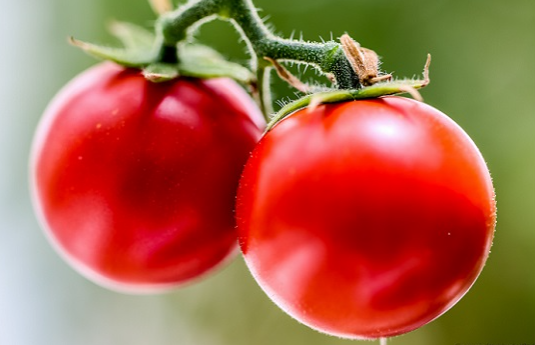This is the VOA Special English Agriculture Report.
Scientists have produced the first tomato that can grow in salty water. Salty water is generally harmful to plants. Plant expert Eduardo Blumwald and his team found a way to direct salt away from the fruit of tomato plants. Mister Blumwald works at the University of California at Davis. The tomatoes were grown at the University of Toronto in Ontario, Canada. The publication Nature Biotechnology reported the findings. Mister Blumwald says the discovery will be important for agriculture around the world.
Farmers use irrigation to water land by other than natural methods. It helps farmers in areas that have long periods of little or no rainfall.
Crop irrigation also increases the salt levels of soils and water. It leaves sodium, calcium, magnesium and other chemicals in the farm land. The chemicals come from the soils and rock that the water passes through. With time, they decrease the productivity of the land.
Experts at the University of California report that high levels of salt from irrigation have damaged about forty percent of the world’s farmland. American officials estimate that irrigation-produced salt is responsible for the loss of ten-million hectares of farmland worldwide each year.
Many areas treated with irrigated water are so salty that some crops can no longer grow. Salty water harms the ability of most plants to take in water through their root cells. The flow of water into the plant may stop if salt levels in the soil are very high.
Mister Blumwald’s team used genetic engineering to stop this effect. The scientists gave their tomato plants a gene from the Arabidopsis plant. The gene controls the production of a transport protein.
The transport protein uses energy in cells to move salt into areas within cells called vacuoles. When the salt is inside vacuole sit cannot interfere with the plant’s normal biochemical activity. The salt-storing activity takes place only in the leaves of the tomato plants. So the tomato fruit is not harmed.
The researchers say these tomato plants also removed salt from the soil. The scientists said the plants grew and produced fruit in water fifty times saltier than normal. Experts say these tomatoes offer hope that other crops can be genetically engineered to grow in areas of the world that have salty irrigation water and salt-damaged soil.
This VOA Special English AGRICULTURE REPORT was written by George Grow.
